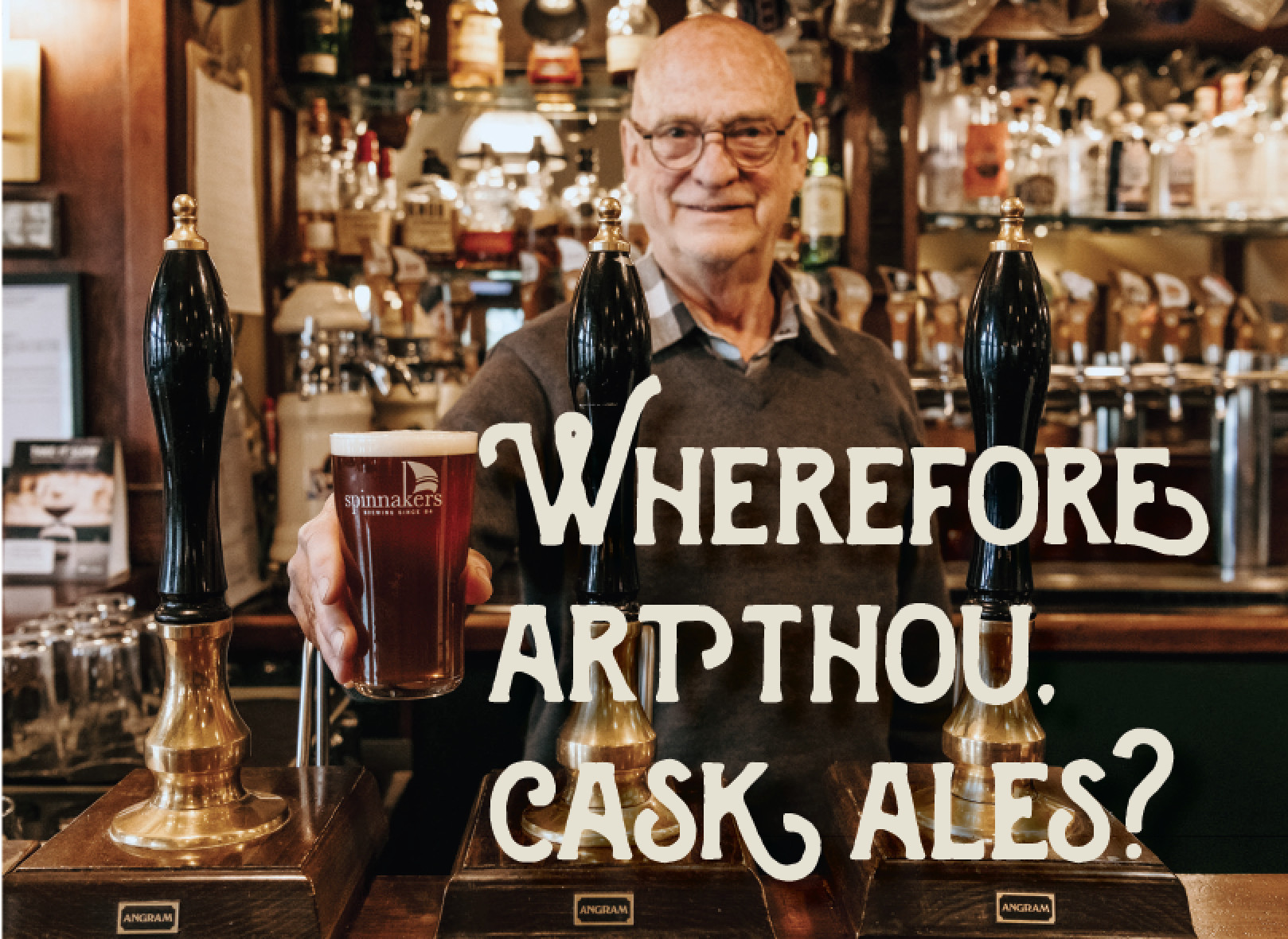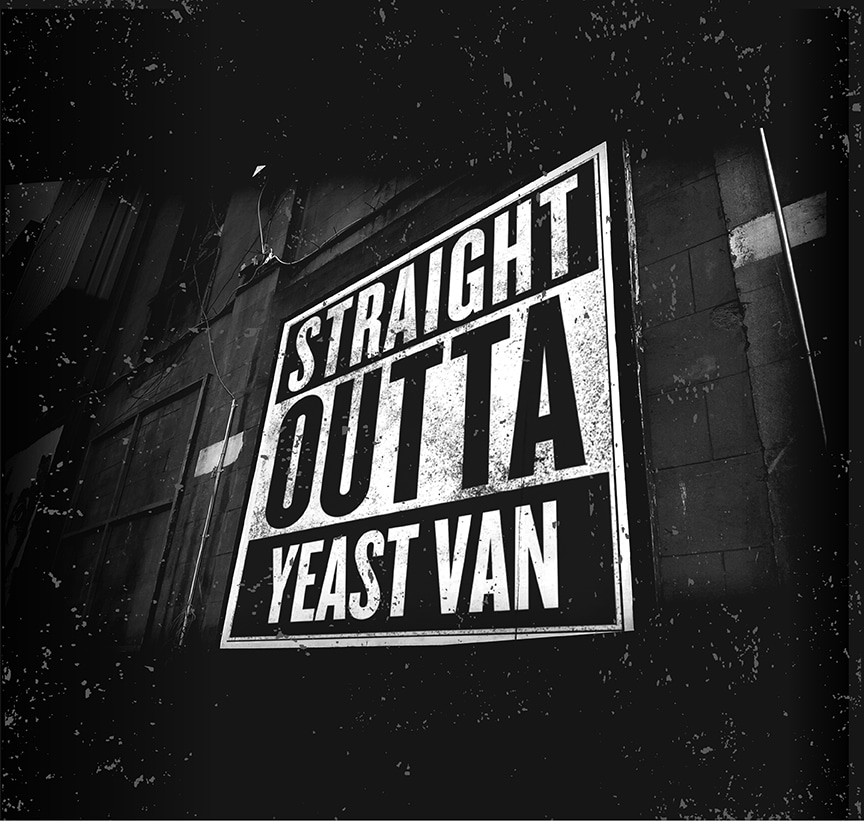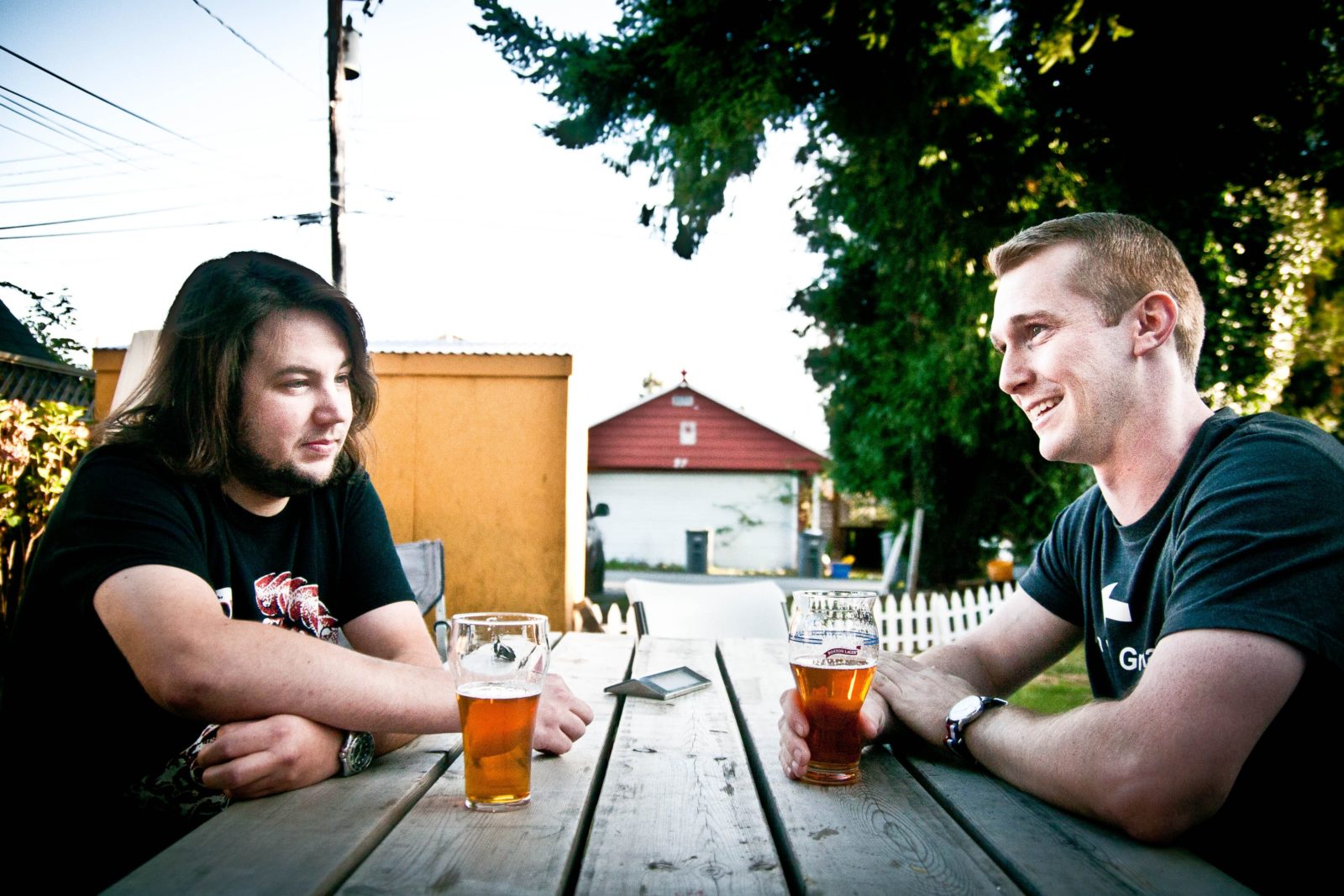
This story originally appeared in the Spring 2020 issue of The Growler, out now! You can find B.C.’s favourite craft beer and cider guide at your local brewery, cidery, select private liquor stores, and on newsstands across the province.
A few years ago it seemed that hand-pulled cask ales were finally finding an audience in this province. The traditional English beer style was being celebrated with festivals, craft beer bars like the Alibi Room had cask engines devoted to real ale and the B.C. Beer Awards even chose the English Mild as the style of the year for its annual Brewers’ Challenge. There was even a brewery based out of Callister Brewing devoted to nothing but real cask ales, appropriately named Real Cask Ales.
And then… nothing.
The cask nights became fewer and far between, Real Cask Ales closed up shop in 2018 and in what many saw as the death knell for the cask, the Alibi Room ripped out its cask engines.
For lovers of real cask ales—like myself—it’s becoming increasing difficult to find.
So what the hell happened?
One of the problems is that cask ales are misunderstood, predictably so. They are everything we North Americans have been told that beer should not be: they’re not served ice cold, they’re not fizzy, they’re not bursting with hops and they’re not boozy.
“I don’t think that’s what the North American drinker is looking for,” says Adam Chatburn, founder of Real Cask Ales. “Palates have been wrecked by years of hop bombs.”
Cask ale is beer in its most raw form. It’s unpasteurized, it’s unfiltered, it hasn’t been force-carbonated and it’s refermented in the vessel it’s served from—either by a spigot or a manually-operated hand pump. It’s quite literally a living thing.
“Cask ale is what beer was like 150 years ago,” says Paul Hadfield, founder of Spinnakers Brewpub, where cask ales have been a mainstay since it first opened in 1984. “It’s beer that’s produced in a very natural way, before industrialization.”
Something so radically different has a tendency to turn people off. And brewers who don’t understand the style are part of the problem.
“I think some brewers see it as a gimmick,” says Main Street Brewing brewmaster Ted Fine. “I remember one brewery did a fruitcake beer with an actual piece of fruitcake in the beer. They don’t treat it with respect.”
Main Street boasts four cask engines and a dedicated brewer in charge of the cask program, all of which is brewed on its 100 L pilot system.
Unfortunately, years of ridiculous, poorly conceived and even more poorly executed cask ales may have turned many people off of them for good.
“I think there’s a lack of understanding about cask ales [amongst brewers],” says Hadfield. “When you go to these cask events, there’s pressure to experiment and you need to one-up the guy at the next table. And you lose perspective.”
Hadfield says his brewery is going in the opposite direction, instead choosing to focus on traditional ales that are suited to the cask.
“When we get crazy and we try to put lagers or imperial IPAs in casks, it turns people off,” he says. “Those beers don’t do well in casks. They can’t carry the volume of carbon dioxide to support all the crazy fruity esters and aromas. So when we make cask beers we do so with understanding what styles make sense, being considerate of the attractiveness of cask conditioning.”
And there’s a lot that’s attractive about cask ales.
Cask ales are the ultimate session beer, designed to be enjoyed for hours on end. The English pub serves as a communal living room for the community it supports, and the low alcohol—often in the 3.0-4.0% ABV range—means that once you knock off work at the textile mill or coal mine, you can crush pints all night without worrying about falling off your horse. And the low carbonation means no gassy bloating.
“There’s something about the refermentation in the cask that produces smaller bubbles,” says Bill Riley, Main Street Brewing’s dedicated cask ale brewer. “You can feel it in the mouthfeel. It’s creamy and there’s no carbonic bite.”
Flavour-wise, traditional real cask ale styles like mild and bitter are malt-forward and exceptionally balanced. Serving them “warm” at 10-13 C allows the malt character to develop.
However, cask ales can be a pain in the ass to store and serve, and many bars want nothing to do with them. Casks must be allowed to settle for 24 hours before tapping, and because they are actively refermenting, they are very susceptible to temperature and spoilage. The shelf life for a cask, once tapped, is generally only a few days.
Unfortunately, few pubs and bars in B.C. have the infrastructure or training to serve proper cask ales.
“They are a lot more work, a lot more mess and so many things can go wrong,” admits Chatburn. “There were only a few places that trusted. Bars would approach me and tell me they want to carry my beer and I’d go have a look at their set-up and I’d have to tell them no.”
There may be hope yet for cask ales, however.
Jamie Overgaard of Smugglers’ Trail Caskworks is currently hard at work building his new brewery in the Langley neighbourhood of Port Kells. Once completed this summer, the tasting room will feature eight hand-pulled cask engines, the most of any brewery or pub in B.C., perhaps in all of Canada.
The former rugby player developed a fondness for the style while living in London, and he’s hoping to carve out a niche as one of the only breweries in the province to specialize in the traditional style.
“I’m hoping we can bring it back and get people interested in cask ales again,” he says.
Required drinking
Mitchell’s ESB // Spinnakers
Dumbell // Main Street
Luceo // Callister
Irish Stout // Moody Ales
- The Spring 2020 issue of The Growler is out now! You can find B.C.’s favourite craft beer and cider guide at your local brewery, cidery, select private liquor stores, and on newsstands across the province.




